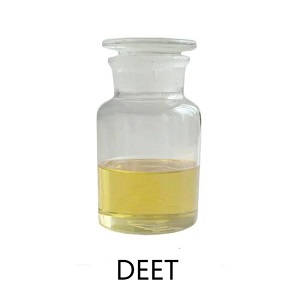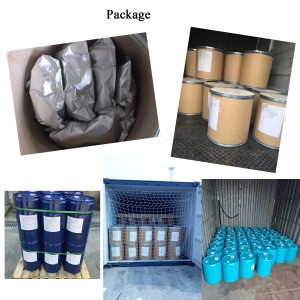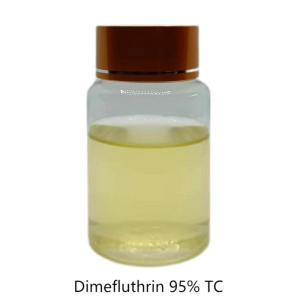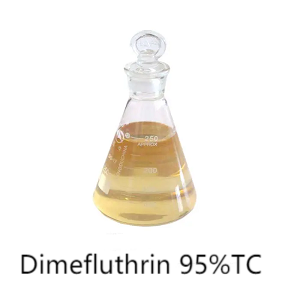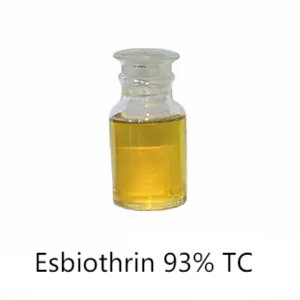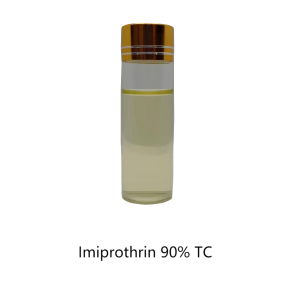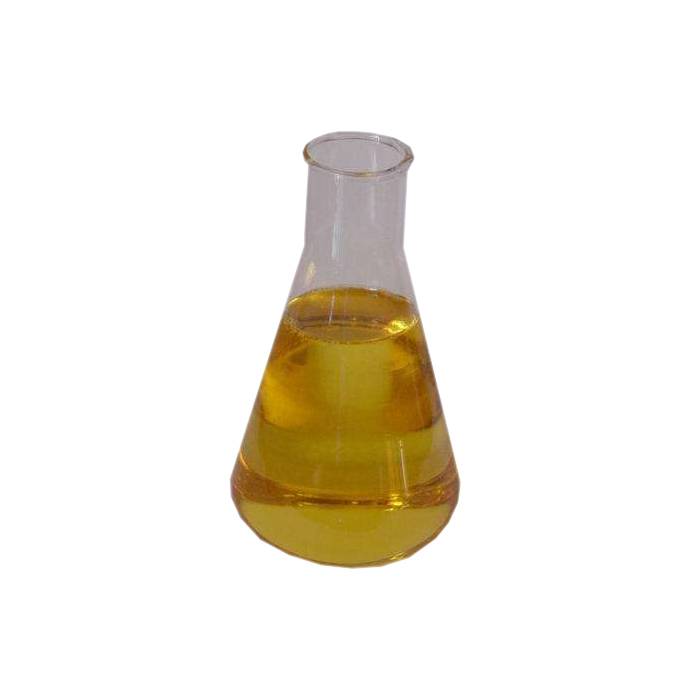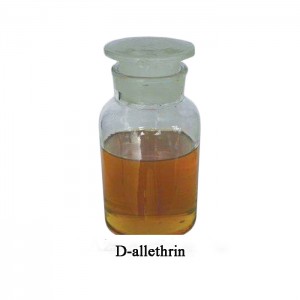Diethyltoluamide Deet 99%TC
Product Description
Application: Good quality diethyl to luamide Diethyltoluamide is an effective repellent to mosquitoes, gad flies, gnats, mites etc.
Proposed Dosage: It can be formulated with ethanol to make 15% or 30% diethyltoluamide formulation, or dissolve in suitable solvent with vaseline, olefin etc. to formulate ointment used as repellent directly on skin, or formulate into aerosol sprayed to collars, cuff and skin.

Properties: Technical is colorless to slightly yellow transparent liquid. Insoluble in water, soluble in vegetable oil, hardly soluble in mineral oil. It is stable under thermal storage condition, unstable to light.
Toxicity: Acute oral LD50 to rats 2000mg/kg.
Attentions
1. Do not allow products containing DEET to come into direct contact with damaged skin or be used in clothing; When not needed, its formulation can be washed off with water. As a stimulant, DEET is inevitable to cause skin irritation.
2. DEET is a non potent chemical insecticide that may not be suitable for use in water sources and surrounding areas. It has been found to have slight toxicity to cold water fish, such as rainbow trout and tilapia. In addition, experiments have shown that it is also toxic to some freshwater planktonic species.
3. DEET poses a potential risk to the human body, especially pregnant women: mosquito repellents containing DEET can penetrate into the bloodstream after coming into contact with the skin, potentially entering the placenta or even the umbilical cord through the bloodstream, leading to teratogenesis. Pregnant women should avoid using mosquito repellent products containing DEET.





